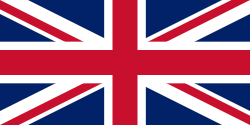This article has multiple issues. Please help improve it or discuss these issues on the talk page . (Learn how and when to remove these messages)
|
| Great Britain at the 2015 Summer Universiade | |
|---|---|
 | |
| IOC code | GBR |
| NOC | British Olympic Association |
| Website | http://www.olympics.org.uk/ |
| in Gwangju, South Korea 3 – 14 July 2015 | |
| Competitors | 64 in 11 sports |
| Medals Ranked 17th |
|
| Summer Universiade appearances | |
Great Britain participated at the 2015 Summer Universiade in Gwangju, South Korea.